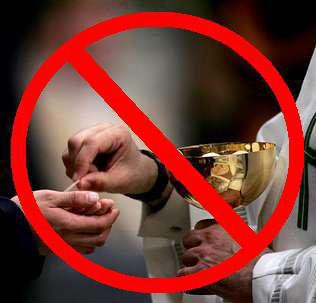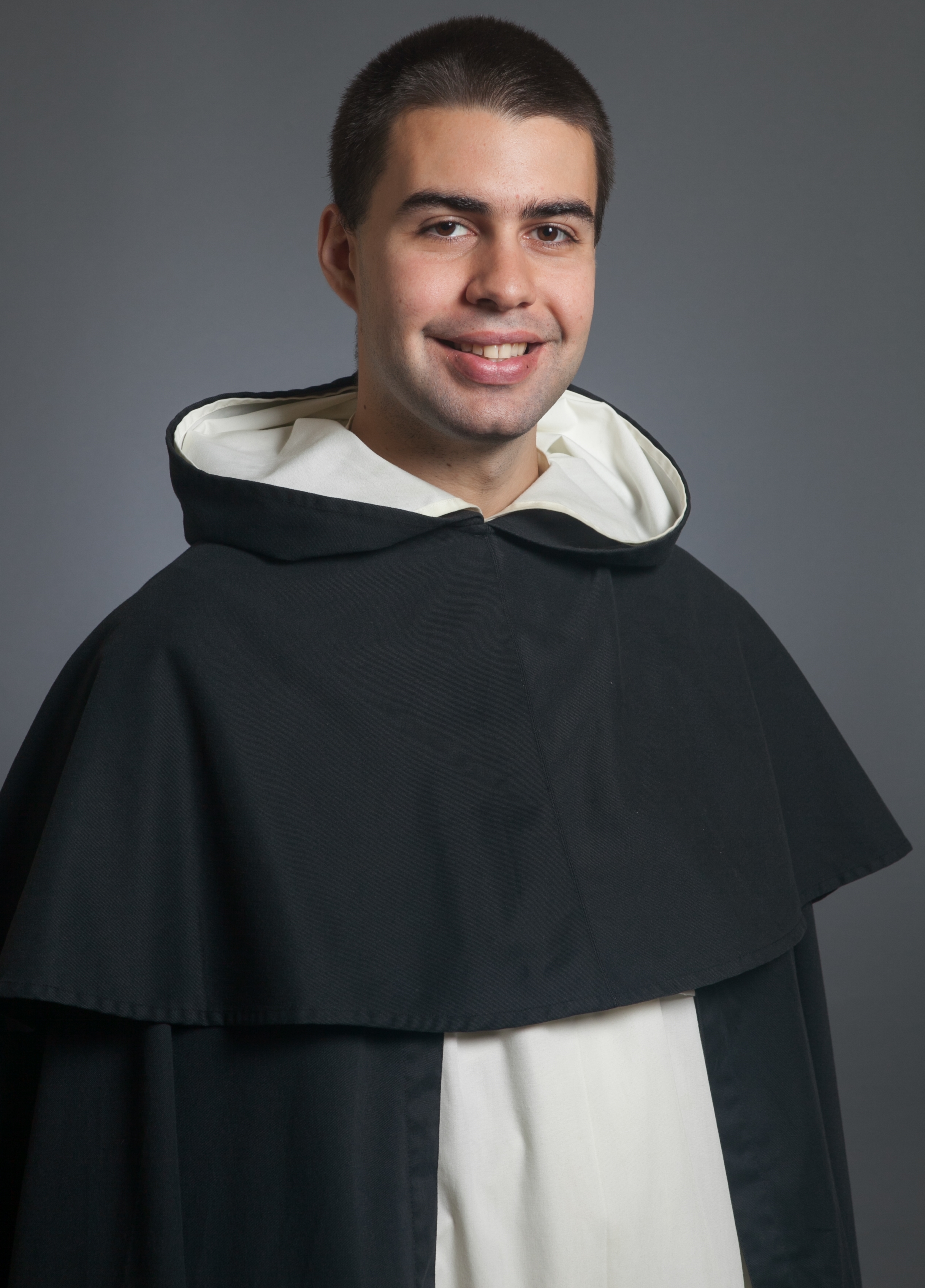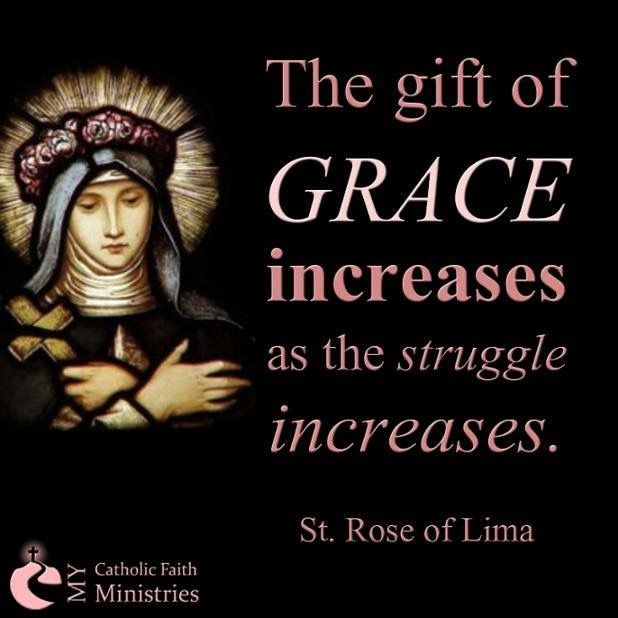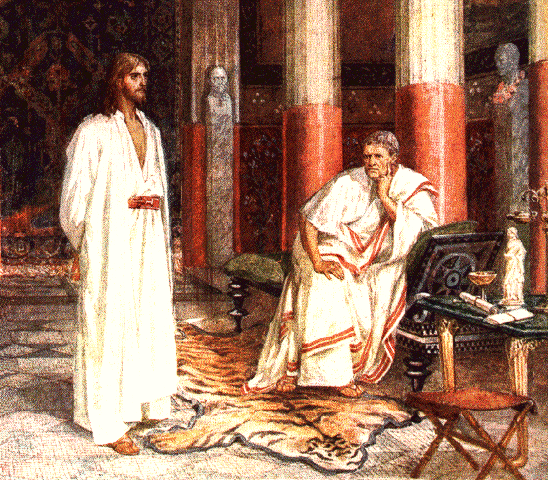
The Church as sacrament
I know it is difficult for others to understand how the well catechized Catholic sees and understands the Church. The Church, herself, is a sacrament. Not a club. Not an association. Not something convenient, social, or popular to belong to, rather, the Church is an absolute necessity and vehicle for salvation. Extra ecclesiam nulla salus.
“Basing itself on Scripture and Tradition, the Council teaches that the Church, a pilgrim now on earth, is necessary for salvation: the one Christ is the mediator and the way of salvation; He is present to us in His body which is the Church. He Himself explicitly asserted the necessity of faith and baptism, and thereby affirmed at the same time the necessity of the Church which men enter through baptism as through a door. Hence they could not be saved who, knowing that the Catholic Church was founded as necessary by God through Christ, would refuse either to enter it or to remain in it.” (CCC 846)
Both CCC 847 and Gaudium Et Spes 22, regarding salvation outside the Church, say, basically, “may”, “ought”. They do not say “will”, “shall”, 51% chance, or any other equivocation from the original formula of Extra ecclesiam nulla salus. And while Mt 18:18, and God gives His authority to His Church, His continuing presence on earth, God does not give away His power to save whomsoever He shall choose, whensoever He may choose. He is God. His Church recognizes this.
Actual & Sanctifying Grace
While belonging to the Church is a “necessary” vehicle, Mt 7:21. Therefore, all before baptism bear the deficiency of original sin, baptism is regenerative in grace. It is grace, sanctifying grace, to be in “the state of grace”, conscious of no mortal sin unrepented and absolved of, that makes us acceptable to God, to be in, to remain in the presence of God after death. God in His infinitely brilliant, beyond comprehension brilliance, where no sin cannot be unconsumed, does not tolerate less than His own grace in His presence. My mother would call her children, I assume my sister, too, but there was never much question about her, but definitely her sons and regularly ask, “(Name) are you in the state of grace?” Lovingly, like a mother who says, “If my children lose their faith, I have failed as a mother” would do. Right? Everybody knows what that’s like. Right? Everybody got those calls from their mothers. Right? 🙂
Sanctifying grace stays in the soul. It’s what makes the soul holy; it gives the soul supernatural life. More properly, it is supernatural life.
Actual grace, by contrast, is a supernatural push or encouragement. It’s transient. It doesn’t live in the soul, but acts on the soul from the outside, so to speak. It’s a supernatural kick in the pants. It gets the will and intellect moving so we can seek out and keep sanctifying grace. You can obtain supernatural life by yielding to actual graces you receive. God keeps giving you these divine pushes, and all you have to do is go along.
Sanctifying grace implies a real transformation of the soul. Recall that most of the Protestant Reformers denied that a real transformation takes place. They said God doesn’t actually wipe away our sins. Instead, our souls remain corrupted, full of sin. God merely throws a cloak over them and treats them as if they were spotless, knowing all the while that they’re not.
But that isn’t the Catholic view. We believe souls really are cleansed by an infusion of the supernatural life. Of course, we’re still subject to temptations to sin; we still suffer the effects of Adam’s Fall in that sense (what theologians call “concupiscence”); but God has removed the sins we have, much like a mother might wash the dirt off of a child who has a tendency to get dirty again. Our wills are given the new powers of hope and charity, things absent at the merely natural level.
He sends you an actual grace, say, in the form of a nagging voice that whispers, “You need to repent! Go to confession!” You do, your sins are forgiven, you’re reconciled to God, and you have supernatural life again (John 20:21–23). Or you say to yourself, “Maybe tomorrow,” and that particular supernatural impulse, that actual grace, passes you by. But another is always on the way, God is never abandoning us to our own stupidity (1 Tim. 2:4).
Once you have supernatural life, once sanctifying grace is in your soul, you can increase it by every supernaturally good action you do: receiving Communion, saying prayers, performing corporal or spiritual works of mercy. Is it worth increasing sanctifying grace once you have it; isn’t the minimum enough? Yes and no. It’s enough to get you into heaven, but it may not be enough to sustain itself. The minimum isn’t good enough because it’s easy to lose the minimum, due to our original sin. Our defect, not God’s. Our defect in preternatural justification, holiness, and grace lost in original sin.
We must continually seek God’s grace, continually respond to the actual graces God is working within us, inclining us to turn to Him and do good; even as original sin causes tempts us to turn away and do evil. This is what Paul discusses when he instructs us: “Therefore, my beloved, as you have always obeyed, so now, not only as in my presence but much more in my absence, work out your own salvation with fear and trembling; for God is at work in you, both to will and to work for His good pleasure. Do all things without grumbling or questioning, that you may be blameless and innocent, children of God without blemish in the midst of a crooked and perverse generation, among whom you shine as lights in the world, holding fast the word of life, so that in the day of Christ I may be proud that I did not run in vain or labor in vain” (Phil. 2:12–16).
Sacraments as primary vehicles of grace
BALTIMORE CATECHISM #3
LESSON 13 – ON THE SACRAMENTS IN GENERAL
Q. 574. What is a Sacrament?
A. A Sacrament is an outward sign instituted by Christ to give grace.
In Catholicism, the seven sacraments are the primary vehicles of grace. To be deprived of them is a serious matter to Catholics for the above stated reasons. If, like in Japan, where for 200 years hidden Catholic communities maintained the faith from the seventeenth century when Catholicism was made illegal in Japan, and clergy expelled, until the nineteenth century when hidden Catholic communities who had kept the faith in Nagasaki and Imamura without clergy were rediscovered by returning missionaries, Catholics would believe God would supply the necessary graces for salvation in the absence of the sacraments.
However, as a means of censure, prohibition of the sacraments could mean the endangerment of one’s soul. Interdict today, it has a long history and technicalities, has the effect of forbidding the person or community, often referred to as “personal” or, in the case of a community, “local”, interdict from celebrating or receiving any of the sacraments, including the Eucharist, or to celebrate the sacramentals. One who is under interdict is also forbidden to take any ministerial part (e.g., as a reader if a layperson or as a deacon or priest if a clergyman) in the celebration of the Eucharist or of any other ceremony of public worship.
However, in the case of a ferendae sententiae interdict, as opposed to latae sententiae, or automatically, similar to excommunication, ferendae sententiae interdict is one incurred only when imposed by a legitimate superior or declared as the sentence of an ecclesiastical court, those affected are not to be admitted to Holy Communion (see canon 915), and if they violate the prohibition against taking a ministerial part in celebrating the Eucharist or some other ceremony of public worship, they are to be expelled or the sacred rite suspended, unless there is a grave reason to the contrary. In the same circumstances, local ordinaries (bishops) and parish priests lose their right to assist validly at marriages.
Automatic (latae sententiae) interdict is incurred by anyone using physical violence against a bishop, as also by a person who, not being an ordained priest, attempts to celebrate Mass, or who, though unable to give valid sacramental absolution, attempts to do so, or hears a sacramental confession. Automatic interdict is also incurred by anyone falsely accusing a priest of soliciting sexual favors in connection with confession or attempting to marry while having a perpetual vow of chastity.
An interdict is also the censure that canon law says should be imposed on someone who, because of some act of ecclesiastical authority or ministry publicly incites to hatred against the Holy See or the Ordinary (Bishop), or who promotes or takes up office in an association that plots against the Church, or who commits the crime of simony.
Our pandemic imposed interdict

by Br Bartholomew Calvano, OP
“Many saints have lived through tumultuous times—much like our own. Look no further than the fourteenth century; it seems to bear a striking resemblance to our present state of affairs. In fact, a quick read through one saint’s writings and you would think that she was living today.
Saint Catherine of Siena was born in the middle of the fourteenth century when the black death swept through Europe. Italy was far from united at the time, for all of the city states were embroiled in near ceaseless warfare (of smaller or larger scale) with one another.
At times, the Pope was even placing cities under interdict so that there were many who could not receive the Sacraments on account of their rebellious leaders. Saint Catherine was sometimes called on to act as an intermediary in these conflicts, such as when she traveled to Avignon in order to convince the Pope to lift the interdict on Florence.
Despite these many tribulations, the Catholic Church and her members persevered through this period of upheaval and uncertainty. And how did they do it? We can look to St. Catherine as a model. Her response to all of the troubles in the world was to implore the Lord to act through his Christian servants, both lay and ordained. She prayed for their renewed fidelity to the vocation God had given them. Whenever she prayed thus, she never failed to include herself as needing the same help she was asking for others.
Saint Catherine’s humble trust in God can serve as an example for us during these uncertain times. Below is an excerpt from a prayer that she said on Passion (Palm) Sunday in 1379, a little more than a year before her death at the age of 33. Perhaps you will find her centuries-old appeal to resonate with the needs of our present day and age.
“Oh Godhead,
my Love,
I have one thing to ask of You.
When the world was lying sick
You sent Your only-begotten Son
as doctor,
and I know You did it for love.
But now I see the world lying completely dead—
so dead that my soul faints at the sight.
What way can there be now
to revive this dead one once more?
For You, God, cannot suffer,
and You are not about to come again
to redeem the world
but to judge it.
How then
shall this dead one be brought back to life?
I do not believe, oh infinite Goodness,
that You have no remedy.
Indeed, I proclaim it:
Your love is not wanting,
nor is Your power weakened,
nor is Your wisdom lessened.
So You want to,
You can,
and You know how
to send the remedy that is needed.
I beg You then,
let it please Your goodness
to show me the remedy,
and let my soul be roused to pick it up courageously.
Response: [St. Catherine pauses here to listen to the Lord’s response.]
True,
Your Son is not about to come again
except in majesty,
to judge,
as I have said.
But as I see it,
You are calling Your servants christs,
and by means of them
You want to relieve the world of death
and restore it to life.
How?
You want these servants of Yours
to walk courageously along the Word’s way,
with concern and blazing desire,
working for Your honor
and the salvation of souls,
and for this
patiently enduring pain,
torments,
disgrace,
blame—
from whatever source these may come.
For these finite sufferings,
joined with their infinite desire,
You want to refresh them—
I mean, You want to listen to their prayers
and grant their desires.
But if they were merely to suffer physically,
without this desire,
it would not be enough
either for themselves or for others—
any more than the Word’s Passion,
without the power of the Godhead,
would have satisfied
for the salvation of the human race.
Oh best of remedy-givers!
Give us then these christs,
who will live in continual watching
and tears
and prayers
for the world’s salvation.
You call them Your christs
because they are conformed with Your only-begotten Son.
Ah, eternal Father!
Grant that we may not be foolish,
blind,
or cold,
or see so darkly
that we do not even see ourselves,
but give us the gift of knowing Your will.
I have sinned, Lord.
Have mercy on me!
I thank you,
I thank you,
for You have granted my soul refreshment—
in the knowledge You have given me
of how I can come to know
the exaltedness of Your charity(love)
even while I am still in my mortal body,
and in the remedy I see You have ordained
to free the world from death.”
-“Prayer 19” in The Prayers of Catherine of Siena, trans. Suzanne Noffke (San Jose: Authors Choice Press, 2001), 212-15.
Love & hope, trust in Him ALWAYS!!!,
Matthew



















